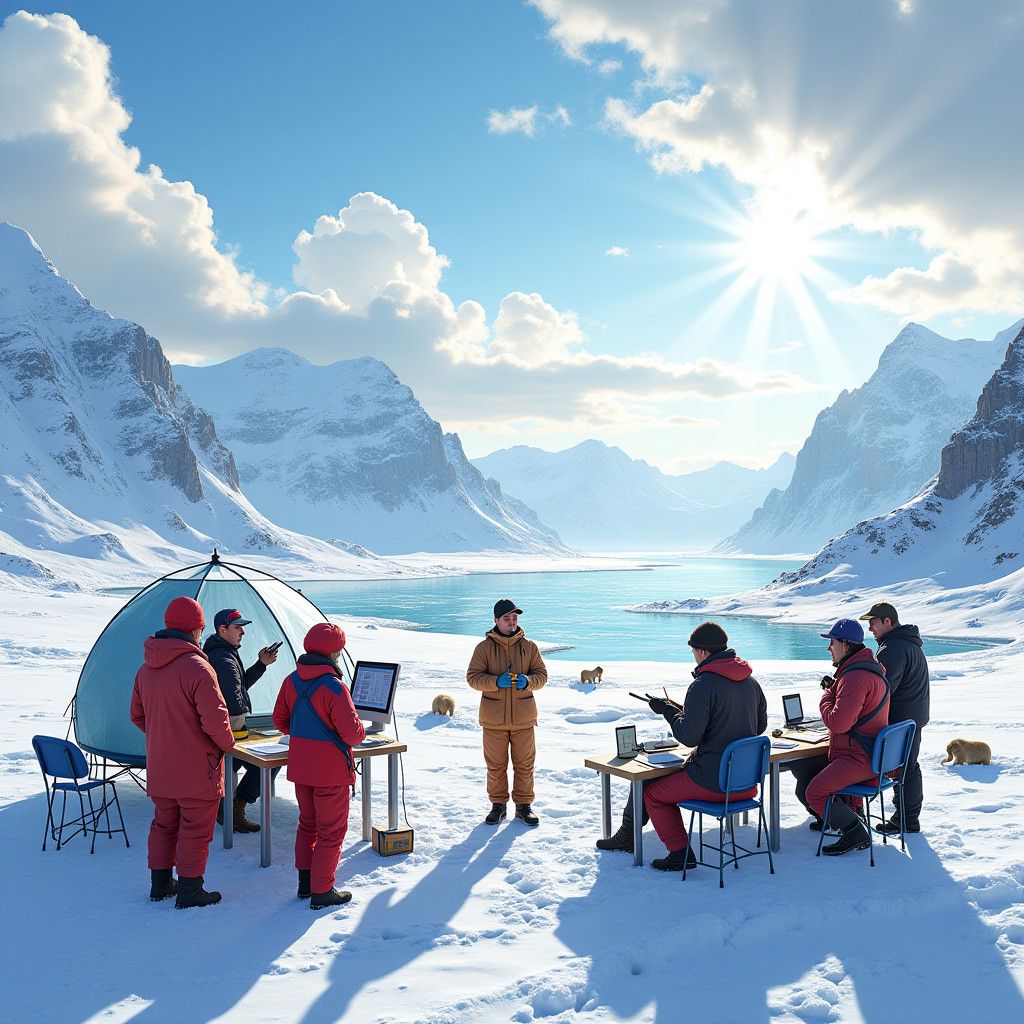The Arctic has transformed from a remote region to a vital hub of scientific research, especially as the effects of climate change become more pronounced. Researchers now recognize the Arctic’s role not only in understanding local ecosystems but also in grasping broader global environmental transformations. The urgent need to study the Arctic has never been more critical, given that this area is warming at four times the rate of lower latitudes, serving as an early warning for potential changes affecting the entire planet.
This compelling reality prompts researchers from various fields to collaborate on studies that address not only environmental issues but also the intricate social, economic, and geopolitical challenges faced by the region’s inhabitants. Indigenous communities, often the first to encounter the shifting conditions of the Arctic, hold essential traditional knowledge that can provide crucial insights into these changes. By blending scientific research with Indigenous perspectives, a more comprehensive understanding of the complexities of the Arctic environment can be achieved.
To better understand these multifaceted issues, we interviewed Dr. Christine Barnard, Executive Director, and Dr. Philippe Archambault, Scientific Director, both of whom lead ArcticNet, a premier network dedicated to Arctic research. According to Dr. Barnard, “Climate change is perhaps the most defining issue of our time, and its impacts are cascading, affecting everything from wildlife migration patterns to infrastructure stability.”
For example, a significant impact of climate change is the ongoing thawing of permafrost. This previously frozen ground influences not only the natural landscape but also the built environment. When permafrost thaws, it can lead to drainage issues, the creation of wetlands, and other challenges detrimental to infrastructure. Similarly, changes in sea ice dynamics can alter shipping routes and community safety, further complicating the lives of those who depend on these conditions for subsistence activities.
Moreover, the question of sustainable energy poses a critical challenge for remote Arctic communities. The traditional reliance on biannual fuel deliveries is no longer feasible, both environmentally and logistically. Developing green energy solutions that are easy to maintain in such harsh climates is a pressing concern. As research priorities extend to areas such as engineering, socio-economic change, and education, ArcticNet aims to facilitate integrated solutions through interdisciplinary approaches.
Through projects like ArcticKelp, researchers are beginning to see how changes in ice cover enhance macroalgae growth, which offers benefits like carbon sequestration and local food sources. However, such research requires the collaboration of diverse disciplines—from marine biology to engineering—which underscores the necessity of a cohesive research framework that values different types of expertise.
In addition to addressing scientific challenges, ArcticNet emphasizes the importance of cultural sensitivity and ethical considerations when working with Indigenous communities. Engaging with these communities involves adhering to local traditions, recognizing their priorities, and ensuring mutual respect throughout the research process. As Dr. Archambault points out, “Understanding and adapting to the realities faced by Indigenous peoples is as crucial as the data we collect.”
To facilitate these complex endeavors, ArcticNet actively trains and incorporates students from diverse backgrounds, ensuring the next generation of researchers is well-equipped to navigate the unique challenges presented by Arctic research. This endeavor requires extensive training beyond typical laboratory skills, embracing logistical, safety, and cultural knowledge to ensure that future scientists can conduct their research ethically and effectively.
Building a bridge between Indigenous and scientific knowledge systems is essential for a holistic understanding of the Arctic. While scientific research often relies on peer-reviewed publications, these resources may not resonate with Indigenous communities. ArcticNet explores various channels for knowledge mobilization, including artistic forms and community engagement, to communicate findings uniquely and effectively.
One significant success story illustrating this collaborative effort was a permafrost research project where local knowledge filled crucial gaps in the researchers’ plans. Initially mapping areas based merely on aerial photography, researchers consulted local communities, enriching their data with insights on slumping areas and water accumulations that would have otherwise remained overlooked.
Collaborative decision-making is fundamental to the direction of ArcticNet’s initiatives. By including early-career scientists and Indigenous researchers in management and leadership, ArcticNet fosters an environment conducive to innovative ideas and shared goals. An example of this collaborative spirit is their annual meeting, which gathers over 1,500 participants—30% of whom are from northern communities—facilitating an exchange of knowledge and networking opportunities.
The path forward for Arctic research is not without its challenges. Navigating differing regulatory frameworks for conducting research in the North can be cumbersome, and researchers must be adept at working within these structures for their projects to succeed. Nonetheless, the integration of diverse skills, knowledge systems, and community input creates a fertile ground for improved outcomes.
Canada has positioned itself as a global leader in incorporating Indigenous perspectives into Arctic research. Recognizing the diverse stages of collaboration across different countries, ArcticNet aims to pave the way for an inclusive model that others can emulate. This approach promises to yield richer insights and more effective responses to the challenges posed by climate change, benefiting not only the Arctic region but the global community.
Understanding how the Arctic’s fate is intertwined with the broader context of climate change is imperative. The dedicated work being done through interdisciplinary collaboration, combined with respect for Indigenous knowledge, signals a promising approach to addressing these pressing issues.
In conclusion, the complexity of Arctic research underscores the need for cooperative and respectful engagement among diverse stakeholders. As the Arctic continues to face profound changes, the commitment to integrating diverse knowledge systems and fostering innovation will be vital in shaping sustainable and effective responses. The Arctic is indeed a unique frontier, and the promise of collaborative research shines brightly, offering hope for the future of our planet.
ClimateChange ArcticResearch IndigenousKnowledge Collaboration ResearchInnovation












